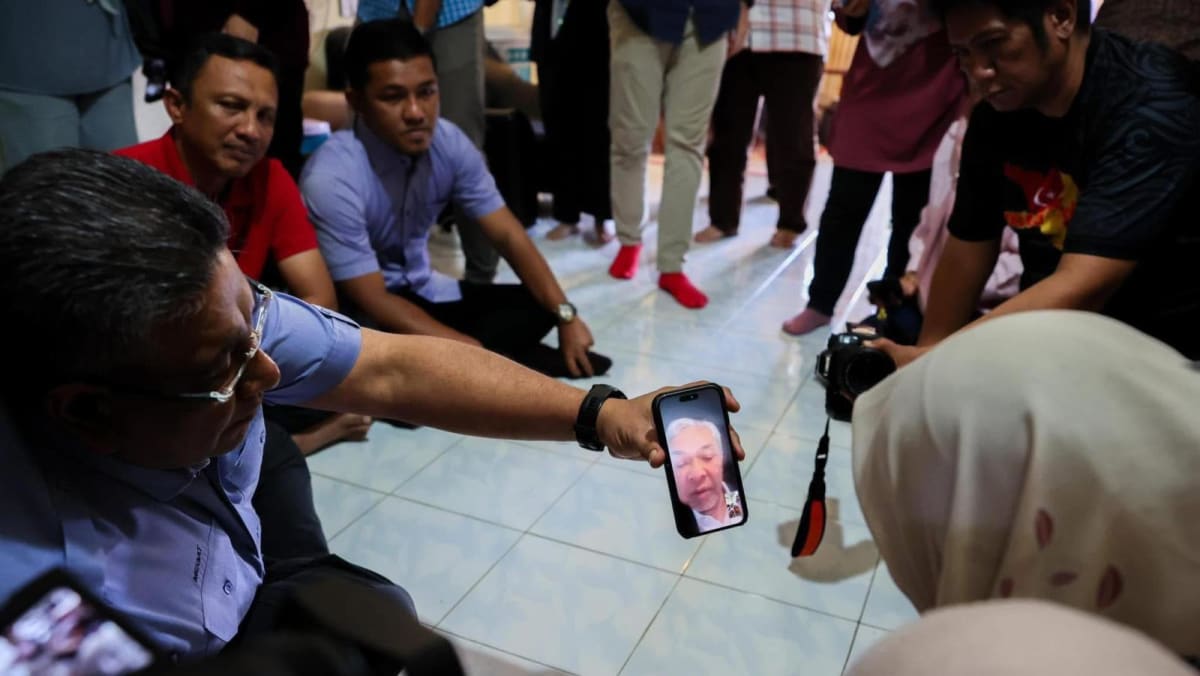“The media picked up on the prince title, so I thought I would have some fun with it,” he says.
Branding, it seems, is one of Ho’s strong points – he has created a regal caricature of himself that pops up on his uniform, as a “garnish” on dishes in The Market and on Ho’s chocolate business card that – with its orange overlapping circles – resembles the logo of a well-known credit card company. It reads “Unlimited Credit Of Joy”.
“In China, my logo was copied but the durian was swapped with a strawberry,” laughs Ho, whose pastry skills were honed at the Shangri-la Kuala Lumpur hotel in Malaysia and in Hong Kong at Cova Pasticceria & Confetteria and The Mira hotel.

While his logo – and sweet card – capture Ho’s whimsical side, do not make the mistake of promoting him to “Durian King”. That title, he says, is reserved for the spiky, and stinky, fruit that is known as the “king of fruits”.
It is so stinky, in fact, that fresh durian is banned in some hotels, public transport and aircraft cabins in Southeast Asia, where crops thrive in the region’s tropical climate.
Despite this, the fruit’s health benefits should not be overlooked: durian is high in fibre, vitamins (B, C) and minerals (manganese, potassium, folate), with studies showing that eating it also promotes a healthy heart and gut.
At The Market, Ho’s fingerprints are everywhere, with matcha durian mochi balls, flaky durian Portuguese egg tarts, and durian cheesecakes and cheese tarts.
The dishes are part of the “All About Durian Afternoon Tea”, available from now until September 29 at the five-star Hotel Icon in Kowloon, and run in parallel with its Malaysian Durian Festival (August 3, 4, 17, 18, 24) – now in its sixth year.
The festival presents a feast for durian lovers, with a platter of five Malaysian durians a highlight.
What Ho has mastered with the popular afternoon tea and annual festival is presenting durian to lovers and haters alike. Non-durian treats such as fried chicken and spring rolls are also available.
Ho’s risk in embracing the divisive durian has paid off: the hotel’s afternoon tea – the restaurant is the first in the city to present the fruit in such a way – has been a massive hit.


Ho could have walked the safe, traditional path taken by many in the city’s saturated afternoon tea landscape, but the Malaysian, who trained as a pastry chef at Ecole Bellouet Conseil in Paris, France, wanted to stand out.
He was determined to fuse French pastry techniques with Asian ingredients, and Hotel Icon’s envelope-pushing ethos – it bills itself as the world’s first fully integrated teaching and research hotel – seemed a good fit. So did the durian.
Ho is experimenting with the fruit, most recently with freeze-dried durian to create room-temperature treats such as biscuits and tuiles (super-thin baked wafers) that carry a subtle durian flavour.
“Fresh durian is not suitable for biscuits because you can’t get a crispy texture, so I use freeze-dried durian, a new trend,” he says of the product that is shipped in powder form from Malaysia.

It is proving a tricky, but not impossible, balancing act: removing moisture from the durian flesh also steals much of its aroma, he says.
Ho also uses the fruit’s seeds and shells in a soup that has been double-boiled, a slow and gentle process called dun in Cantonese that extracts the most flavour without compromising the texture of the ingredients.
Pan-fried Hokkaido scallops with durian mango salad, pandan durian roulade with pork floss, and shrimp toast with durian dip also feature. Sweet items include durian choux with mango coulis and durian palmier.

There is also the double-boiled abalone duck soup that has been simmered for three hours and infused with the essence of mini Musang King durian, including its flesh and shell. Delicate durian flowers have also been used.
“Durian flowers give the dish a subtle sweet fragrance,” says Ho, handing over a container of the freeze-dried blossoms, the label reading “hand-picked from the Jungles of Sarawak”, the Malaysian state that hugs the northwest coast of Borneo.
While Thailand is the biggest exporter of durians, other countries such as Vietnam, Indonesia, the Philippines and Malaysia are making waves.
As for the best durians, Ho believes Malaysia’s are top because they are tree-ripened, a method that reduces the fruit’s shelf life but best preserves its flavour and nutrients.
“When you go for aroma and taste, of course Malaysian durians are the finest.”
Ho knows his trade. His father was a durian farmer and the younger Ho often witnessed how hard-working farmers were exploited by industry middlemen.
Ho’s mother also helped shape his future. Growing up in the Malaysian capital, Kuala Lumpur, the aspiring chef spent many weekends in the kitchen with her baking.
“I helped measure the eggs, flour and sugar,” says Ho, adding that when asked at school what he wanted to be when he grew up, he always said pastry chef.


Early signs pointed that way.
“As a kid I’d rearrange food on my plate in a fine-dining style,” he recalls. “My grandmother kept me telling me off for playing with my food.”
For Ho, cultivating strong relationships directly with durian farmers is vital.
“I want to help Malaysian farmers increase their income and I always thank them for their hard work,” says Ho, adding that Hotel Icon uses about 1.5 tonnes of fresh durian paste each month. “In return, I will get a good-quality product.”
Malaysian Durian Festival, August 3, 4, 17, 18, 24 (brunch and dinner buffet), Silverbox Ballroom, 1/F, Hotel Icon, 17 Science Museum Road, Tsim Sha Tsui East, Kowloon. All About Durian Afternoon Tea, HK$468 (US$60) per person; HK$798 for two, The Market, 2/F, Hotel Icon. Ends September 29.







